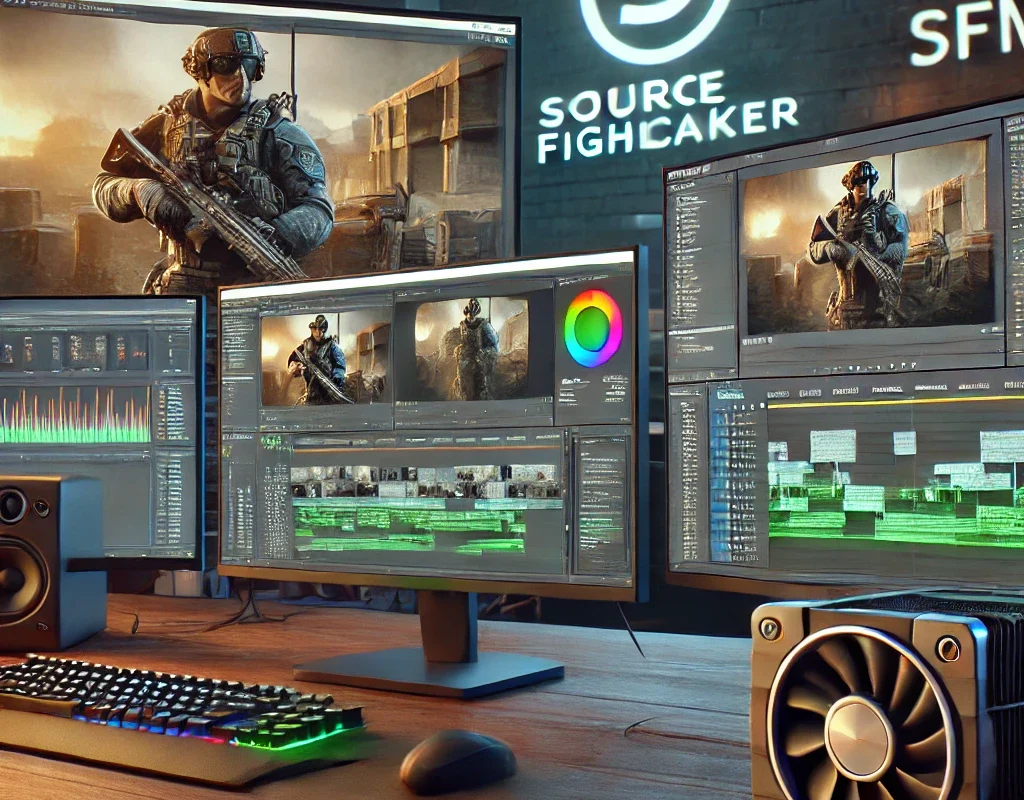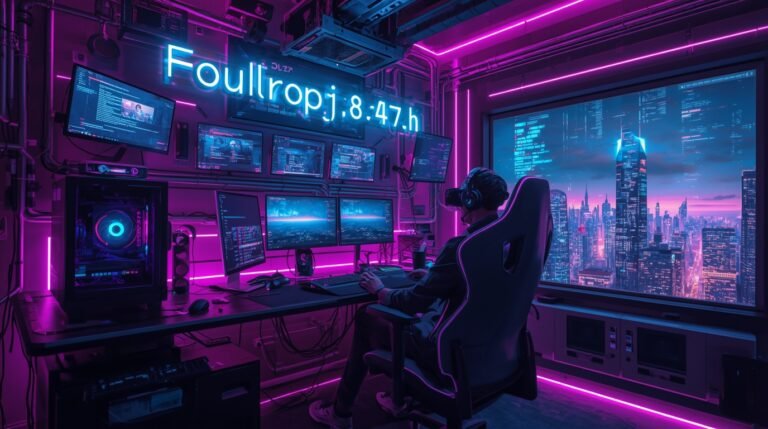SFMCompile: The Ultimate Guide to Compiling in Source Filmmaker
“Creating animations in SFM is like baking a cake. You gather your ingredients (assets), mix them up (timeline), and then bake it (compile). If your oven’s broken or unpredictable, you’re in for a messy outcome. That’s where sfmcompile comes in.”
Creating in Source Filmmaker (SFM) is a thrill, but many animators hit a wall during the final step: rendering. That’s where SFMCompile shines. It’s a method (and sometimes a toolset) that streamlines the often-tricky process of compiling animations into smooth, professional-looking videos. In this guide, we’ll explore exactly what sfmcompile is, how it works, and why it’s become an essential part of the SFM workflow.
What Is SFMCompile?
A Quick Introduction to Source Filmmaker (SFM)
Source Filmmaker is a powerful animation tool created by Valve. It lets creators make stunning 3D animations using assets from games like Team Fortress 2, Portal, and DOTA 2. Built on the Source engine, SFM offers real-time editing in a cinematic environment. That means you see your animation unfold just as your viewers will.
But here’s the catch: while building scenes is fun and intuitive, rendering them into a final video can be slow, buggy, or just confusing. That’s where sfmcompile comes in.
Defining SFMCompile
SFMCompile refers to the process and techniques used to render and export your SFM animation into a final video file. While SFM has a built-in export option, advanced users often use command-line tools, scripts, or GUI wrappers to gain more control.
In short: sfmcompile helps you export your work faster, cleaner, and with fewer headaches.
Why SFMCompile Matters to Animators and Creators
Rendering Without the Pain
Default rendering in SFM can be a nightmare:
- Long render times
- Missing assets
- Low-quality video output
- Sudden crashes mid-render
SFMCompile solves these issues by:
- Allowing custom resolutions (4K, 1080p, etc.)
- Supporting batch rendering for large projects
- Handling frame-by-frame exports more reliably
Better Control Over the Final Output
With sfmcompile, you can:
- Choose your frame rate (30fps, 60fps, etc.)
- Pick the codec you want (H.264, AVI raw, etc.)
- Adjust bitrate and quality settings
- Render only specific parts of your scene
“I used to avoid final renders like the plague. Now I actually look forward to compiling — sfmcompile changed everything.” – SFM Animator on Reddit
How SFMCompile Works: A Step-by-Step Overview
Understanding the Compilation Pipeline
Before rendering, SFMCompile needs you to:
- Organize your shots on the timeline
- Set up cameras and lighting
- Configure export settings (via GUI or command line)
The Compilation Process Demystified
Here’s what happens under the hood:
- SFM breaks your project into individual frames
- It renders each one using the engine’s graphical settings
- Then it compiles them into a video or image sequence
Tools That Enhance SFMCompile
Some animators use community-built tools like:
- SFMHelper: A wrapper that simplifies export settings
- Batch files for automation
- Render farms to split the workload
Troubleshooting Common SFMCompile Errors
“Could Not Load File” and Other Headaches
Common issues and how to fix them:
| Error Message | Likely Cause | Fix |
|---|---|---|
| Could not load file | Missing model/texture | Verify game paths and re-import assets |
| Audio out of sync | Frame rate mismatch | Match timeline FPS to compile FPS |
| Black screen output | Camera misplacement or export setting error | Re-check scene camera and export flags |
Broken Textures, Audio Lag, and Missing Models
- Solution: Manually re-link missing textures in Element Viewer
- Audio Lag: Export audio separately using Audacity and re-sync in editing software
Crashes During Compilation
- Make sure you’re using a 64-bit system with enough RAM
- Split long scenes into smaller shots and compile separately
Optimizing Your Workflow Using SFMCompile
Batch Compiling Multiple Projects
If you’re working on a series:
- Create a batch file (.bat) with a list of scenes to compile
- Use placeholders for resolution and output folders
Reducing Compile Time Without Losing Quality
- Lower motion blur unless necessary
- Disable ambient occlusion in early tests
- Use PNG sequences for heavy scenes instead of direct video export
Hardware Recommendations for SFMCompile
| Component | Recommendation |
| CPU | Intel i7/Ryzen 7 or better |
| GPU | NVIDIA RTX 3060 or better |
| RAM | 16 GB minimum (32 GB preferred) |
| Storage | SSD for project files |
Advanced Tips and Tricks for Power Users
Command Line Compilation with SFMCompile
Example:
sfm.exe -render movie -project "my_scene.dmx" -start 0 -end 300 -fps 30 -res 1920x1080 -output "final.mp4"Creating Reusable Templates
Save time by creating preset scripts with:
- Your favorite resolution
- Preferred codec
- Consistent file structure
Automating Post-Compile Cleanup
- Use
robocopyorrsyncto auto-backup renders - Schedule scripts using Task Scheduler or Cron
SFMCompile vs Other Rendering Tools in the SFM Ecosystem
Manual Rendering in SFM vs SFMCompile
| Feature | Manual Render | SFMCompile |
| Speed | Slow | Fast (especially with batch) |
| Custom Settings | Limited | Full control |
| Batch Support | No | Yes |
Third-Party Render Tools
- SFMHelper: Visual interface, no scripting
- Crowbar: For model prepping, not direct rendering
- Blender (with SFM imports): High-quality, steep learning curve
Which One Should You Use?
If you want speed and reliability without coding: use SFMHelper or SFMCompile scripts. If you need cinematic control: Blender is better but slower.
The Community Behind SFMCompile
Modding and Custom Scripts
Many community members share:
- Auto-compiling batch scripts
- Custom render configs
- Error-fix patches
GitHub Projects and Fan-Made Tools
Search GitHub using tags like sfm compile, sourcefilmmaker batch, or dmx render. Examples:
Tutorials, Forums, and Help Resources
- Steam Community – Source Filmmaker Forum
- r/SFM on Reddit
- Discord servers like SFM Central
SFMCompile in Action: Real Examples and Use Cases
Fan Animations and YouTube Shorts
Creators use sfmcompile to crank out:
- Viral meme animations
- TikTok-ready shorts
- Game mod previews
Game Trailers and Cinematics
Some indie devs use SFM for:
- Teasers
- Cutscenes
- Steam Greenlight videos
Film Jams and Animation Contests
Speed is critical in these challenges. SFMCompile lets animators meet 48-hour deadlines with higher quality than real-time renderers.
Final Thoughts: Is SFMCompile Worth Your Time?
If you’re serious about animation in Source Filmmaker, sfmcompile isn’t optional—it’s essential. It saves time, fixes problems, and gives you professional results without breaking your PC.
Whether you’re animating memes, crafting cutscenes, or just learning the ropes, mastering sfmcompile will take your work to the next level.
Quick SFMCompile Cheatsheet
| Task | Tool | Shortcut |
| Render 1080p | CLI or GUI | -res 1920x1080 |
| Batch scenes | Script | compile_batch.bat |
| Fix missing textures | Manual/Script | Check .vmt and .vtf paths |
| Log errors | CLI flag | -log_errors 1 |
FAQs About SFMCompile
Q: What’s the best way to compile animations in SFM?
A: Use SFMCompile with command-line or GUI helpers for clean, fast results.
Q: Why is my compiled video black?
A: Check your camera assignment and rendering settings.
Q: Can I compile multiple projects at once?
A: Yes, using batch scripts or render farm tools.
Q: What’s the difference between viewport recording and compiling?
A: Viewport is low-res and fast. SFMCompile is high-res and optimized for quality.
Q: How can I reduce file size without sacrificing too much quality?
A: Use H.264 codec with CRF settings between 18–23.
Related Keywords Used:
- Source Filmmaker
- SFM rendering
- SFM export
- Compile SFM animation
- Render SFM video
- SFM render settings
Need more help with Source Filmmaker? Check out Valve’s official developer documentation and stay connected with the SFM community on Reddit and Discord.






